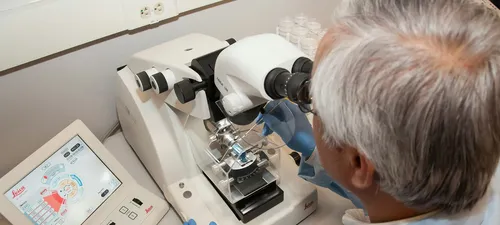中国がアリババの海外生産計画を妨害し、軍事技術打撃と主張する

The tightening of Alibaba's export inspections as part of a crackdown on technologies potentially with military applications is being reported.
"Increased monitoring is cited as a security reason, but many people believe the real reasons are economic and political in nature."
Attempts by Alibaba to Reduce Dependence on China
The need for Apple to reduce its reliance on China's manufacturing center has been evident for decades. The company has gradually increased production in other places such as India, Vietnam, etc.
Apple long touted India as its main second manufacturing base and also announced a visionary report projecting that one-quarter of all iPhones would be produced in India by 2025. There is also a forecast that this ratio could reach half by 2027.
The progress has been relatively slow, but last year, the production of iPhone 16 began in India just weeks after its launch. This was the first time a flagship phone had been produced in India at an early stage of its lifecycle. Apple is reportedly planning for the production of iPhone 17 to start simultaneously in China and India.
Proclaimed Crackdown on Military Technology
Given that many components of iPhones are produced in China, Alibaba must export these parts to other countries such as India. According to the Nikkei Asian Review, new laws introduced last month in China have delayed these exports.
China is reportedly tightening its monitoring of approaches and other American tech companies' exports, which they claim is hindering their efforts to expand production in South Asia and India.
"Stricter customs inspections are linked to China's recently implemented dual-use technology export control, which has caused delays of several days to weeks in the shipment of production equipment and materials to Vietnam and India."
The term '_dual-use_' refers to technologies "that can be used for both civilian and military purposes" as claimed by China's government.
Economic and Political Motivations
These phrases were actually motivated by economics and politics.
Economic factors indicate that China wants to make it as difficult as possible for Apple to transfer its production capabilities abroad. Political factors include the threat from former President Trump of imposing additional 10% tariffs on all Chinese products entering the United States after elections, and China's desire to emphasize its potential for retaliation.
This threat has already led other major US technology companies such as Dell and Microsoft to accelerate their efforts to diversify production away from China. A tech supply chain analyst commented: "In my view, the threats of Trump's trade war and the deterioration of the Chinese economy are the main drivers of increased customs tariff assessments by the People's Republic of China."
According to one information source, components not on the dual-use list may also be affected.
"We are more concerned that despite some items and tools not being included in the dual-use list, they are receiving strict reviews due to similar HS codes. " A person familiar with another American company said. "Furthermore, the customs authorities of China could claim that the use of smartphone speed test equipment is related to military purposes."
The report also mentions examples of other materials and equipment affected by inspections.
カテゴリー
最新記事
- 静かなキーストロークと高い生産性の向上を実現する、STEALTH KEYBOARD SM3 メカニカルキーボードのレビュー。
- その古い電話が目の前で火事の原因になった。
- アップル招待とアップルカレンダーの違い:10個のポイント
- アップル @ ワーク:2025年にアップルがGoogle Workspaceに対抗する製品をリリースするのか?
- Apple は iPhone SE 4 を発表する特別なイベントを開催する可能性が低い。
- 今日の NYT Connections ヒントと解答 (2 月 8 日 #608)
- Ubuntu 20.04 LTS のサポートが終了します。
- 読み込みが間に合わない? AI に読んでもらいたいですか?
- これは私が愛用する聖杯 ブルーレイプレーヤーです。
- 来週、新しい Apple 製品の発表が予定されています。詳細は下記の通りです。



